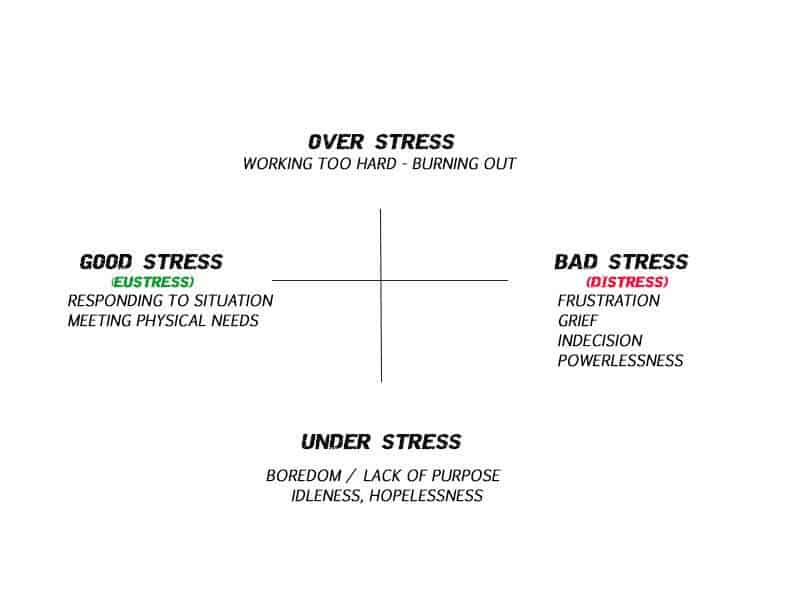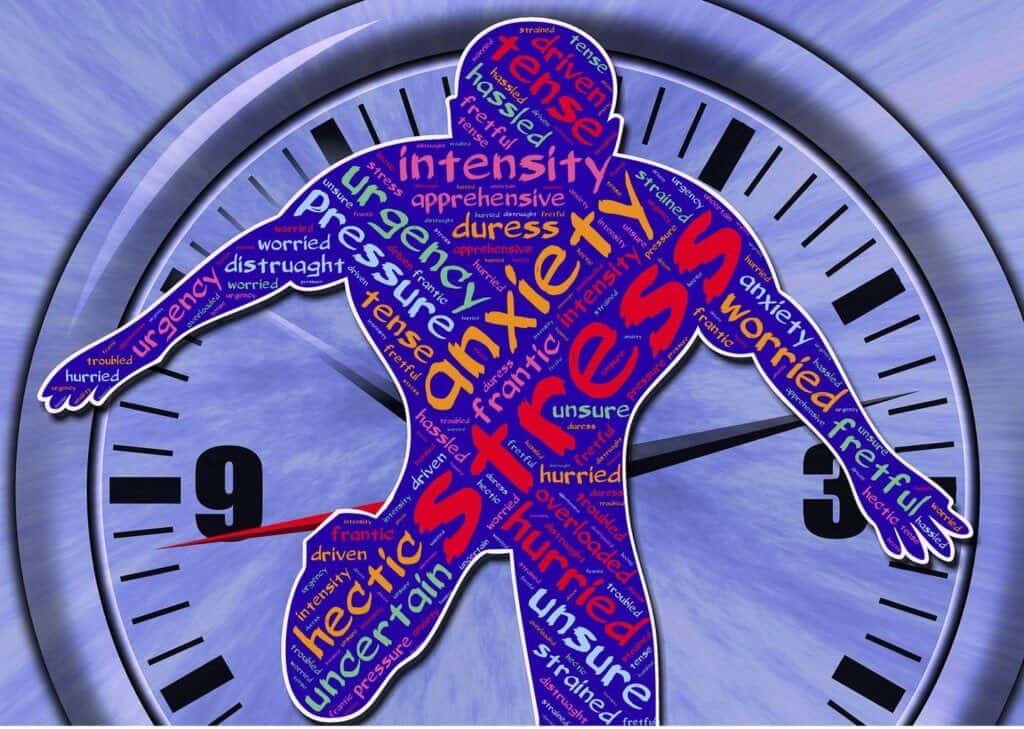There is no doubt that long term survival will take it's toll on our minds.
https://prepperswill.com/psychology-of-survival-and-coping-with-stress/
https://prepperswill.com/psychology-of-survival-and-coping-with-stress/
Psychology Of Survival And Coping With Stress
October 2, 2019 by Bob Rodgers
The current approach to survival training with a few notable exceptions is to focus on the physical skills and deal with the psychological aspects in a secondary manner. The psychology of survival is almost never found in today’s media, and preppers and survivalists are unaware ho the psychology of survival operates.
The focus on physical survival is reflected in the following statement often found in survival manuals: “Man can survive approximately three minutes without air. Three hours without shelter (in certain extreme weather conditions). Three days without water (less in high temperatures), and lastly, three weeks without food.”
One then must ask the question, how long will you survive if you panic or have no will to survive?
The answer, of course, is not very long. I believe the crucial factor in the survival equation is the attitude and will to live of the survivor, and it is important to focus on this area when training for potential survival situations. The psychology of survival is often ignored, even though it has an incredible effect on anyone finding themselves in a disaster scenario.
The purpose of this article is to examine the nature of survival stress and the coping mechanism which can be mobilized to increase the chances of survival. The first requirement for the survivor is to have already a sound self-concept and belief in oneself as a person, combined with a positive attitude about his condition.
Rather than think, “what a terrible position I am in”, one should focus on “how can I improve this position?”
The crucial factor in mental control is our own perception of the survival situation. Our previous life experience, training, values, and attitudes form the perceptual filter through which we evaluate our situation. This evaluation will determine our response to the stressors.
The stressors in survival situations may be fear, anxiety, pain, injury, illness, excessive cold or heat, hunger, thirst, fatigue, sleep deprivation, loneliness, and isolation. The underlying psychological fear is a lack of control, a feeling of helplessness which is accentuated by impending, continuous, lack of certainty as to the final outcome.
The obvious solution is to begin exerting control by dealing with the stressors in a practical manner. ACTION reduces stress.
The different nature of survival stressors can best be illustrated using the following model of life stress
Psychology of survival – Types of stress
You will notice that it is just as important to avoid working too hard as it is to avoid the onset of boredom. When dealing with stress, one should seek the balance of eustress which is a positive response of the exertion of a degree of control over the situation.
In a eustress situation, there is a balance between the physical, emotional and mental aspects of the personality and all are coping with the situation. The person’s abilities are able to adapt and manage the stressors.
On the other hand, in the overstress situation the physical aspect may dominate and greater and greater efforts made to fight a situation which eventually leads to fatigue, exhaustion, and burnout.
There are survival situations where a supreme effort may be required — to ski out of an avalanche, to grab a rescue rope, to avoid a rockfall. However, repeated attempts at maximum effort may indicate that the wrong solution is being attempted and trying too hard may exhaust limited resources.
In these instances, the psychology of survival shows us that an increased focus on the cognitive domain may provide an alternative solution. If there is too much concentration on the cognitive domain, the mind floods with too many alternatives and functional decision making may be impaired. People will dither and be in a quandary about what to do next or even what to do first.
In the case of distress, the emotions dominate actions and feelings of frustration, grief, indecision, and powerlessness may cloud judgment, develop into fear/anxiety, and erupt into panic.
In the psychology of survival, panic is normally associated with the initial impact of that stage of the survival experience although it may manifest itself later under prolonged stress.
Psychology of survival – Reaction to stress
Hans Selye, the noted Canadian researcher on stress, identified the following stages of the body’s reaction to stress.
An initial alarm reaction stage which is characterized by a drop in normal body activity — this is the initial frozen panic.
This is followed by a rapid increase in body activity as the body mobilizes its defenses and is aroused by increased hormonal activity and adrenaline. This is the “fight/flight” response as the body prepares for action and reaches a high state of physical and mental alertness.
This is followed by a period of adaption where the body maintains a higher than normal level of activity. The adaptation stage continues until the stress is removed and the body returns to normal or, if body reserves are depleted, it ends in exhaustion and death.
While learning about the psychology of survival, it is important to realize that we all have a finite amount of adaption capacity. It is really important to know our capacity and to pace ourselves accordingly and use our finite spiritual and physical energy as effectively as possible.
Effective adaption and pacing are greatly improved with progressive training and realistic simulations. One of the side effects of technical survival training may well be an improvement in psychological endurance. This is more likely to take place if the survival training is deliberately and purposely stressful.
Obviously, the level of this stress must be carefully monitored and controlled to prevent permanent harm.
The situation of under stress is typified by boredom, illness, lack of purpose, and hopelessness and often develops in long term survival situations where people just give up.
In accident situations, it is estimated that only 12.5 percent of people react effectively. An incredible 75 percent will have some degree of bewilderment. The remaining 12.5 percent will exhibit inappropriate behaviors.
The period of psychological shock will vary from seconds to years. Once again realistic simulation training, adaption, and habituation will greatly improve a person’s response
This initial impact phase in a survival situation is followed by a second phase which has three stages:
What is the best way to handle survival stress?
- Denial where the victims protests and denies the situation is happening—this is an intellectual non-acceptance.
- Recall where there is a mental replay, re-talking, re-imagining of the experience.
- A return to more effective coping behavior typified by coming to terms with the problem.
The answer to this problem is in the developing of a series of coping mechanisms or tactics which can be combined within an overall strategic plan. It is important to have a long-term plan and use the coping tactics to help achieve this objective
Coping mechanisms include:
Psychology of survival – Decision/Action
- Decision/action.
- Setting realistic goals/Manageable units.
- Centering or focusing.
- Ritual and order.
- Switching off.
- Humor.
Research has shown that the highest stress recorded in parachutists is immediately before the jump. Once the green light goes on, and the person is committed to the jump the stress indexes drop rapidly before the jump takes place!
Uncertainty and doubt are removed once a decision has been made and the movement to action brings one a sense of regaining of control of the situation.
The physical action also uses up energy from a body in a high state of arousal because of the flight/fight response. Inactivity in this high state of arousal is very stressful.
It is even more beneficial if the action improves the situation even if it is only of marginal benefit, e.g., gathering firewood, making an inventory of resources, constructing a windbreak, making a signal fire.

